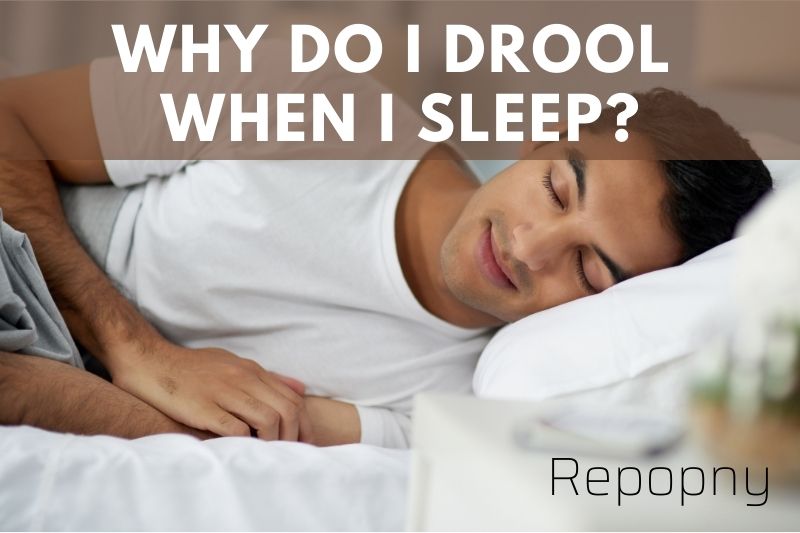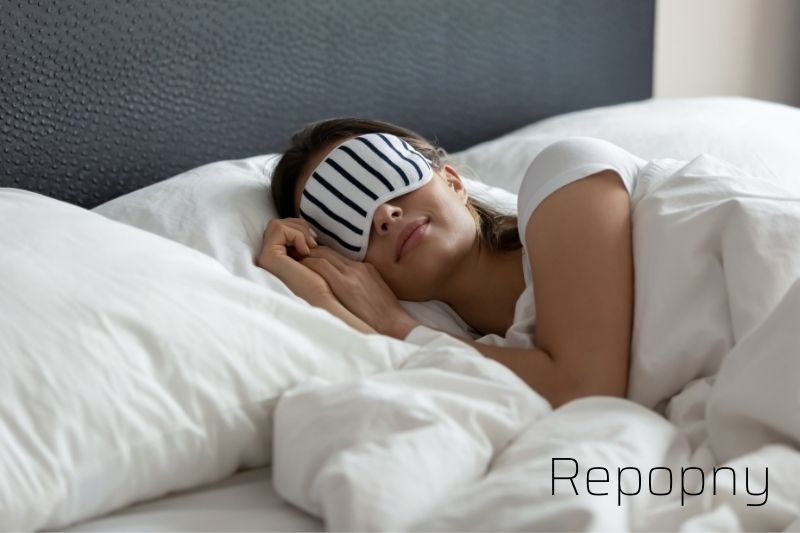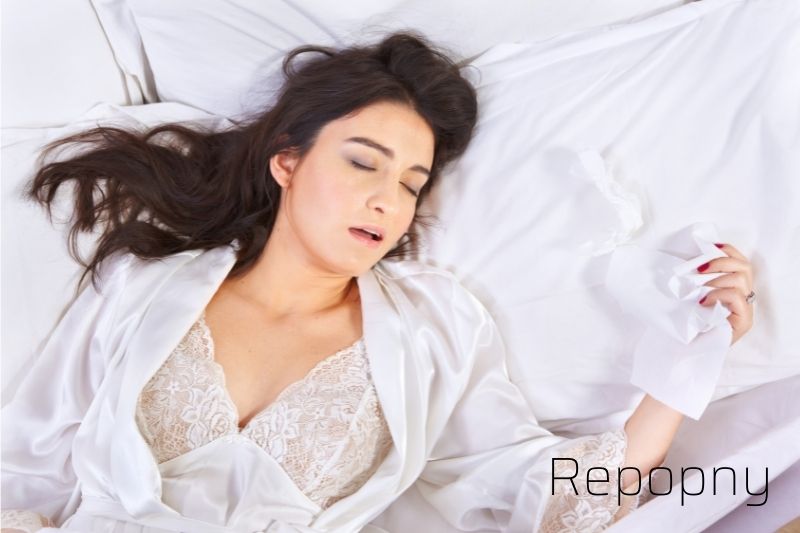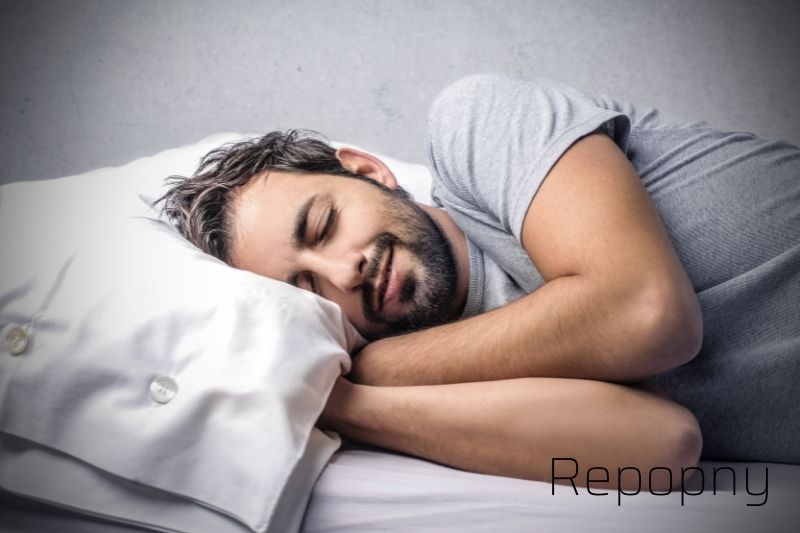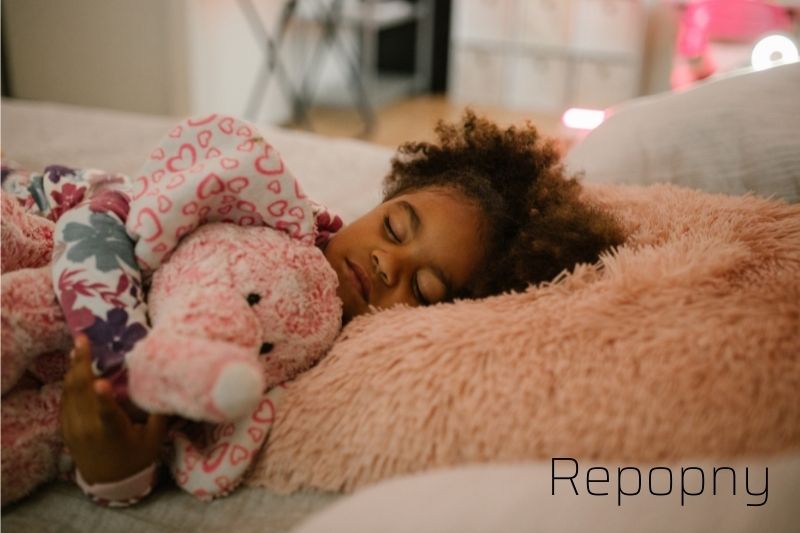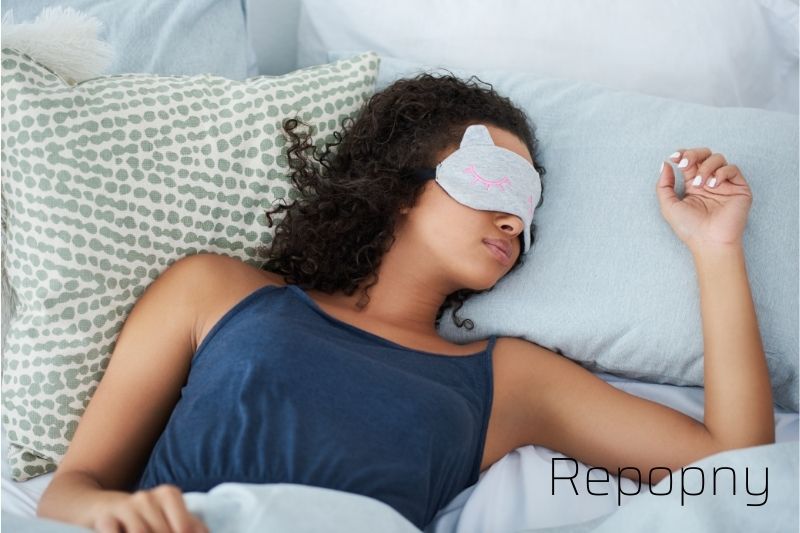- Repopny
There are a few reasons to explain why do I drool when I sleep. One reason is that your mouth may open slightly when you sleep, which can cause drooling.
Another reason is that certain medications can cause dry mouth, leading to drooling. Finally, if you have a condition called sleep apnea, you may snore loudly and drool.
Contents
What Makes Me Drool When I’m Sleeping?
Drooling happens when you create too much saliva, have difficulty holding it in your mouth, or have difficulty swallowing. Sialorrhea, also known as hypersalivation, is the overproduction of saliva. Drooling is natural during sleep. However, certain situations may lead you to salivate more than usual.
Your Sleeping Position
Your sleeping position4 impacts how much drool you wake up with on your pillow. Gravity forces any excess saliva produced by a sleeper to stay in their mouth or migrate to their throat when they rest on their back. On the other hand, Gravity is more likely to drag saliva down toward the pillow inside and stomach sleepers, resulting in drooling.
If you sleep on your side or stomach with your mouth open, you’re more prone to drool during the night. Drooling can be reduced by sleeping on your back. You can also use mouth tape to help you breathe out of your nose and keep your mouth closed while sleeping.
Allergies and Infections
When you have a cold, strep throat, or seasonal allergies, your sinuses might become inflamed and blocked, forcing you to breathe through your mouth and drool more than usual5. Increased drooling can also be caused by diseases like mononucleosis, tonsillitis, and sinus infections.
Gastroesophageal Reflux Disease
Although heartburn is the most well-known gastroesophageal reflux disease (GERD), other symptoms include drooling and dysphagia6 or difficulty swallowing. Dysphagia caused by GERD can make people feel as though a lump in their throat, causing them to drool more frequently.
Furthermore, if your esophagus is inflamed or obstructed7, your body may respond by creating extra saliva to soothe the irritation, resulting in increased drooling.
Obstructive Sleep Apnea
Obstructive sleep apnea (OSA)8 is a sleep-related breathing disease in which you stop breathing for brief periods while sleeping. OSA is frequently accompanied by, or even worsened by, mouth breathing9. Drooling may be more likely if you sleep with your mouth open because drool can leave more easily while your mouth is open. Additional OSA symptoms include:
- While sleeping, you may snore, gasp, or choke.
- Getting up in the middle of the night
- Headaches in the morning
- Having trouble concentrating during the day
- drowsiness during the day
Talk to your doctor if you notice any of these symptoms.
Bruxism
Drooling is frequently associated with sleep bruxism10 or tooth grinding during sleeping. This could be due to bruxism and mouth breathing, as saliva is more likely to exit the mouth when a person sleeps with their mouth open. Other prevalent risk factors for bruxism, in addition to drooling and mouth breathing, were discovered in a study of children:
- Snoring
- Sleepless nights
- Sleeping for shorter periods
- Sleeping stomach
Side Effects of Medication
Certain medications, such as antibiotics, antipsychotics, and Alzheimer’s treatments, can cause excessive salivation and drool as a side effect.
If you drool at night and use prescription medications, your medication could be the source of your drooling. Drooling is one of the possible adverse effects of your medication, so check the list. Do not stop taking your prescription if drooling is mentioned. Instead, discuss your concerns with your doctor and ask if they can suggest an alternative drug that won’t make you drool as much.
Medical Conditions at the Root
Your neurological system activates your salivary glands, explaining why neurodegenerative illnesses are associated with difficulty swallowing11 and excessive drooling. Excessive salivation is experienced by around 70% of patients with Parkinson’s disease and up to 80% of people with cerebral palsy. Swallowing difficulties and excessive drooling can also be caused by:
- Epiglottitis
- Bell’s palsy12 is a type of paralysis.
- Amyotrophic lateral sclerosis (ALS) is a type of amyotrophic lateral sclerosis (ALS).
- Huntington’s
- Stroke
- Traumatic brain injury (TBI) is a type of brain injury.
How To Stop Drooling While Sleeping
You were drooling when sleeping is common and may not always necessitate therapy. If you believe you drool excessively while sleeping, there are various options you can attempt, ranging from lifestyle changes to speech therapy, medication, and surgery.
Some treatments are straightforward, while others are reserved for the most severe cases of drooling. Make an appointment with your doctor to talk about your options.
Alter Your Sleeping Positions
Changing your sleeping position is the most straightforward way to stop drooling. Try sleeping on your back if you usually sleep on your side or stomach.
You should be aware that you may need to purchase a new pillow to sleep peacefully if you change your sleeping position. Side sleepers often need a considerably thicker pillow than back sleepers, and stomach sleepers typically use a much thinner pillow, if any at all. Place additional cushions around the sides of your body to help you keep in position if you’re having problems staying on your back during the night.
Allergies should be Treated
If you drool at night and have allergies, it’s possible that your allergies are to blame. Allergy treatment may clear your sinuses, allowing you to breathe more deeply via your nose rather than your mouth. Drooling may be reduced if you can breathe through your nose instead of your mouth when sleeping.
Botox Injections are an Option to Consider
Because botulinum toxin injections, such as Botox, have few side effects, they are regarded as a safe and effective treatment for excessive drooling. Botulinum toxin injections into the salivary glands can stop them from overproducing saliva. Remember that these injections aren’t a long-term treatment, and you’ll need more if the benefits wear off after a few months14.
Put a Mandibular Device on Your Mouth
Mandibular devices are a sort of oral appliance that you wear while sleeping. They’re made to keep your lips closed and your tongue and teeth in the proper positions to help you stop drooling, snoring, and grinding your teeth.
Consider Speech Therapy.
Speech therapists can give you techniques to strengthen and stabilize your tongue and jaw muscles. You may be able to improve your swallowing, breathe better with your mouth closed, and lessen drooling with speech therapy.
Inquire about Medications.
Drooling medication may be administered for people with neurological disorders. Drooling is reduced with these drugs because nerve impulses to the salivary glands are blocked. However, they frequently cause negative symptoms, such as a parched mouth.
Inquire about Surgery
Your doctor may propose surgery if you have severe hypersalivation. Drooling can be treated with various surgeries, including surgical removal of salivary glands, changes to salivary gland ducts, and nerve connections to salivary glands.
Surgery is usually reserved for persons who drool during the day, and even then, it is only used as a last resort after all other treatments have been tried and failed. According to studies, drooling surgery works well, with up to 89 percent of individuals reporting improvement.
FAQs
Is it possible for the medication to make you drool while you sleep?
Yes. Certain pharmaceutical medicines, such as the antipsychotic clozapine, can produce hypersalivation. Excess saliva and nighttime drooling can also be caused by medications for Alzheimer’s disease, myasthenia gravis, or other conditions.
How can I get rid of the ache in my mouth and the additional drool?
You may have an infection or cavity in your teeth if you have excessive saliva and soreness in your mouth or gums.
4 One method the body could try to fight an infection in the mouth is to produce more saliva. Visit your dentist for complete cleaning and examination.
Conclusion
There are several different causes of drooling, which can make diagnosis difficult. However, you should know the reason behind your drooling to decide what treatment to pursue. If you are concerned about your drooling, make an appointment with your doctor. Repopny hopes you find this guide useful.
